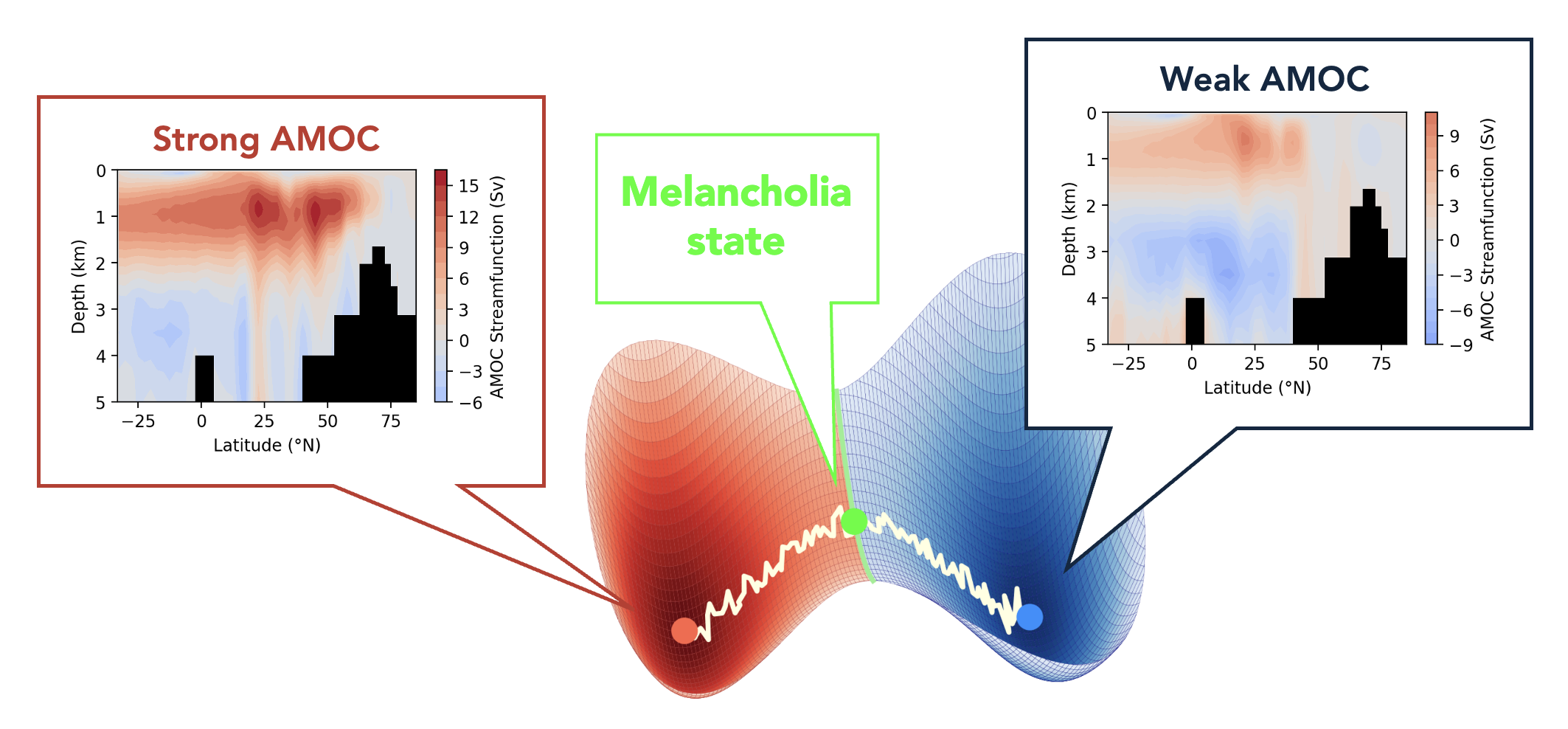Ocean Melancholia
What separates today's ocean currents from a collapsed state?
The goal of this project is to better understand the stability of the Atlantic ocean circulation (Atlantic Meridional Overturning Circulation, AMOC) by investigating the edge state or Melancholia state that separates a strong stable ocean flow from a much weaker stable circulation state.
What is the AMOC?
The AMOC is a large-scale ocean current in the Atlantic that transports huge amounts of heat northwards, contributing to the mild climate in northern Europe. Like other parts of the Earth system (such as ice sheets or rainforests), the AMOC is believed to be multistable: it can exist in more than one stable state for the same external conditions. This implies a risk of 'tipping' from today's stable flow state to a much weaker stable current as a result of fluctuations or long-term changes in the climate. A collapse of the AMOC would cause severe climate impacts around the globe.
Rather than focusing on the equilibrium states of the AMOC, we ask what lies in between. What separates conditions that will sustain a strong AMOC from those that will lead to a collapsed AMOC? And what characterizes the 'point of no return'? To address these questions, we look at Melancholia states.
What is a Melancholia state?
The theory of multistable dynamical systems tells us that edge states, or Melancholia states, often act as gateways for transitions from one to another stable state (sometimes they don't). Although these states are unstable, the system can remain near them for long transient periods. Knowing the properties of Melancholia states could thus help understand the mechanisms of tipping events and offer a physics-based approach to estimating their risk.

How do we compute it?
In this project, we compute and investigate the Melancholia state of the AMOC in climate models of different sophistication, from conceptual climate models to an intermediate-complexity earth system model. To this end, we use an edge tracking technique that works robustly even in high-dimensional chaotic systems.
Related publications
- O. Mehling, R. Börner and V. Lucarini, Limits to predictability of the asymptotic state of the Atlantic Meridional Overturning Circulation in a conceptual climate model (2024). Physica D: Nonlinear Phenomena, 459, 134043
- R. Börner, O. Mehling, J. von Hardenberg and V. Lucarini, Global stability of the Atlantic overturning circulation: Edge states, long transients and a boundary crisis under CO2 forcing (2025). arXiv:2504.20002
